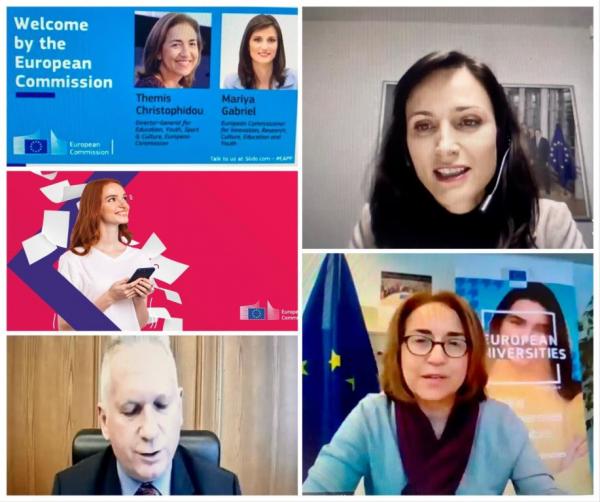28.01.2021
“Mobility, educational opportunities and internships in an EU country are among the most popular activities of the Erasmus+ program. The new program, which has almost doubled its budget of 26 billion euros, will be more inclusive and accessible. It will offer support for a wider range of participants and additional opportunities, including a new type of mixed mobility. With the Erasmus+ app, students will have space for sharing experiences and information. The goal is to become a single online point of access to information and services, which will allow them to perform all administrative steps online from abroad”, said the Bulgarian EU Commissioner Mariya Gabriel at the online conference dedicated to the creation of the new mobile app “Erasmus+”.
The event was attended by 1,500 students, representatives of student organizations and different universities. The first version of the new app is now available on Google Play and the App Store, as well as on the website erasmusapp.eu. The app will be finalized in September 2021. The current initial version also contains ways to identify and verify the identity of students, developed in the context of the student electronic identification scheme, ie. students can use their national university qualifications to create their profiles. Through a link to the Erasmus Without Documents Network, they will be able to identify host universities, sign their training agreements, find practical information, events or special discounts.
“This is an important step in the realization of my key European student card initiative. The new Erasmus+ app is part of our ambition to make the unique Erasmus + experience more open and accessible to more young people – not only in higher education, but also in schools, in the field of vocational education and training. We rely on the assistance of students, student organizations, universities for ideas and suggestions through which to add new features and characteristics to the application before its official launch in September this year”, said Mariya Gabriel in conclusion.
